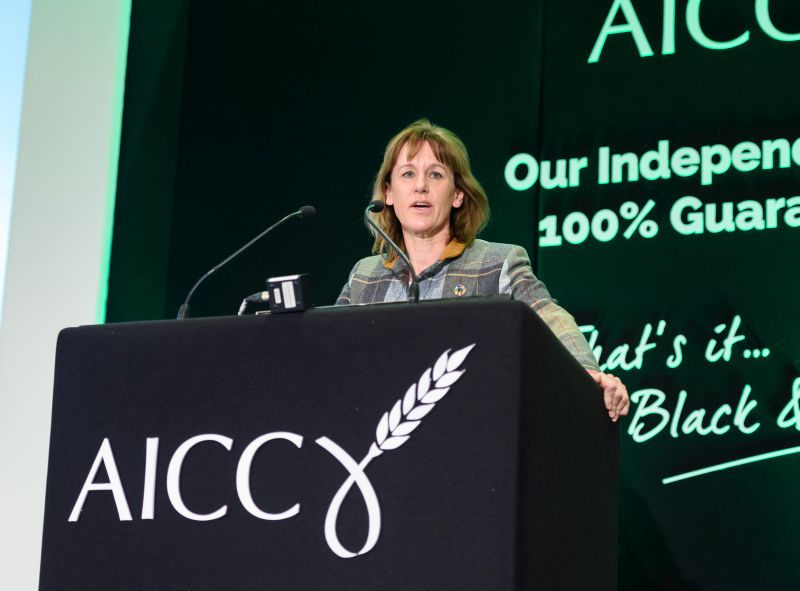
Integrated pest management (IPM) will play an 'increasing role' in UK crop production post-Brexit and agronomists are leading the way in its implementation on farm.
Speaking at the recent Association of Independent Crop Consultants (AICC) near Towcester, NFU president Minette Batters warned delegates that 42% of farm businesses will be loss making if direct payments are lost after the UK leaves the EU.
Farm output will need to be raised by 10% or more to counter this effect, but Defra secretary Michael Gove’s focus to deliver a “Green Brexit”, with less emphasis on food production, could restrict the arable sector’s ability to do so.
Whatever the final details future agricultural policy hold, increasing output will have to be done in an environmentally sensitive way, with IPM an integral part, according to Ms Batters.
IPM is a practice based on prevention, monitoring and control of damaging organisms using a range of cultural and biological methods, using of plant protection products only when absolutely necessary.
She added that influencing outside views on the use of these tools will be important, putting safe and responsible use at the forefront of public perception.
“I have been very keen that the cropping sector looks at what the livestock sector has done with RUMA, which has been about responsible use of medicines and antibiotics.
“This isn’t about using less [inputs], this is about us as an industry being transparent and having an evidence base [for use] and I think that will become more and more important,” said Ms Batters.
Hybrid system
AICC chairman and Lincolnshire agronomist Sean Sparling echoed these sentiments, but warned against a shift towards relying too heavily on non-chemical approaches, with the current “hybrid” system allowing the production of safe, plentiful and affordable food.
He added that modern plant protection products have passed a decade of regulatory scrutiny before being approved for use on a farm level and are recommended by highly qualified advisers, such as AICC members, so are safe to use.
“We use them because the natural and cultural answers need more help today than ever before, as the problems we face in the field are evolving more rapidly than ever before, not helped by climate change,” explained Mr Sparling.
“Neither systems are stand-alone solutions, but putting together those cultural methods, IPM practices and pesticides produces the key to our food security.”
Proactive
AICC members are proactive in the practice of IPM, with regular contact between groups and individual members across the UK discussing approaches to controlling current pest, weed and disease problems on a daily basis.
The organisation also has the power to turn around nationwide surveys covering huge areas of the national cropped area in hours to help inform its strategy, demonstrated by its annual Cabbage Stem Flea Beetle survey.
“We are all about using every tool at our disposal and IPM will play a bigger and bigger part in the future of plant protection,” said Mr Sparling.
“To our members, IPM isn’t just the latest fad, it’s a crucial area of expertise in our armoury and is firmly behind every single decision we make.”
